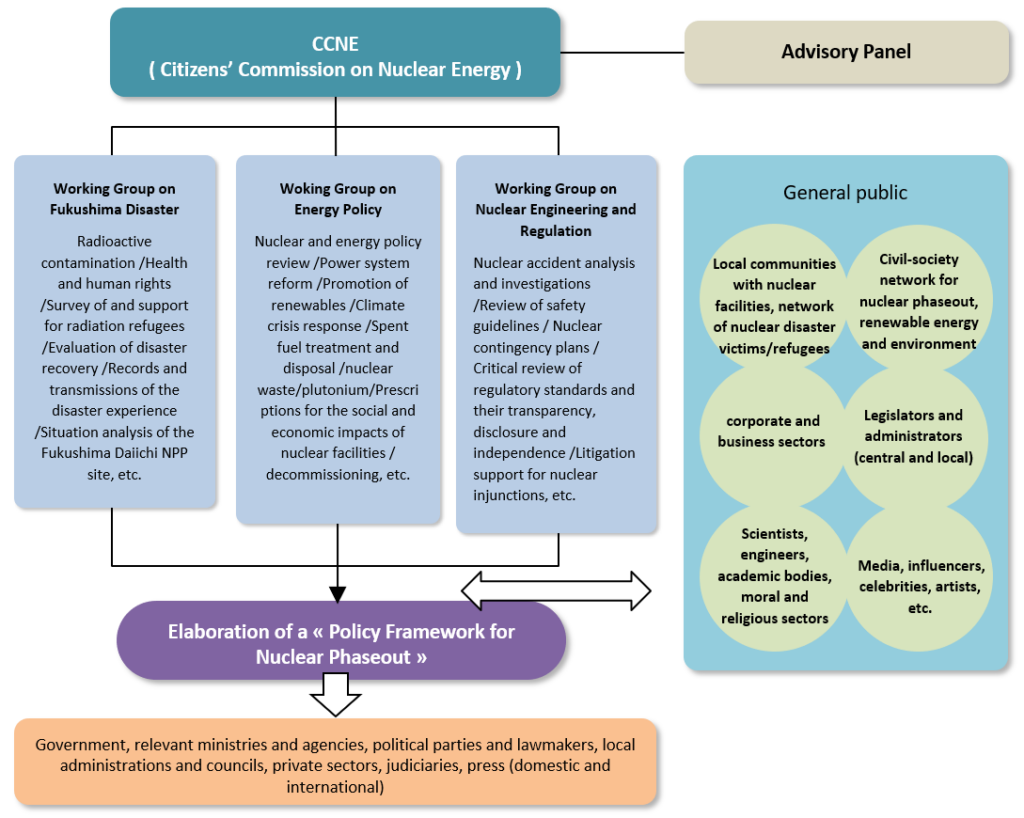Organization

For the Foundation of the Citizens’ Commission on Nuclear Energy (CCNE)
Read the full text
For the Foundation of the Citizens’ Commission onNuclear Energy (CCNE)
April 15, 2013 Hiroyuki KawaiRepresentative directorThe Takagi Fund for Citizen Science Two years have passed since the Great East Japan Earthquake and the F…
Prospectus of the Citizens’ Commission on Nuclear Energy (CCNE)
Read the full text
Prospectus of the Citizens’ Commission on Nuclear Energy (CCNE)
April 15, 2013 Two years have passed since the Fukushima Daiichi nuclear power plant accident occurred following the Great East Japan Earthquake. The melted-…
Report
- Our Path to a Nuclear-Free Japan: Policy Outline for a Nuclear Phaseout(2014)
- The Fukushima Daiichi Nuclear Disaster — Complicated and Deepening Damage(2022)
Press
2024/2/20
Press Conference: On Shaky Ground: Japan’s Nuclear Power Policy and the Noto
Statements and Letters
2023/4/7
Open Letter regarding the ICRP 2023
2023/3/29
Open Letter to the G7 Ministers on Climate, Energy and Environment
2019/10/24
Statement on the proposed update of ICRP Publications 109 and 111
2013/10
Our path to a nuclear-free Japan: an interim report (Introduction)
Our path to a nuclear-free Japan: an interim report (Executive Summary)
